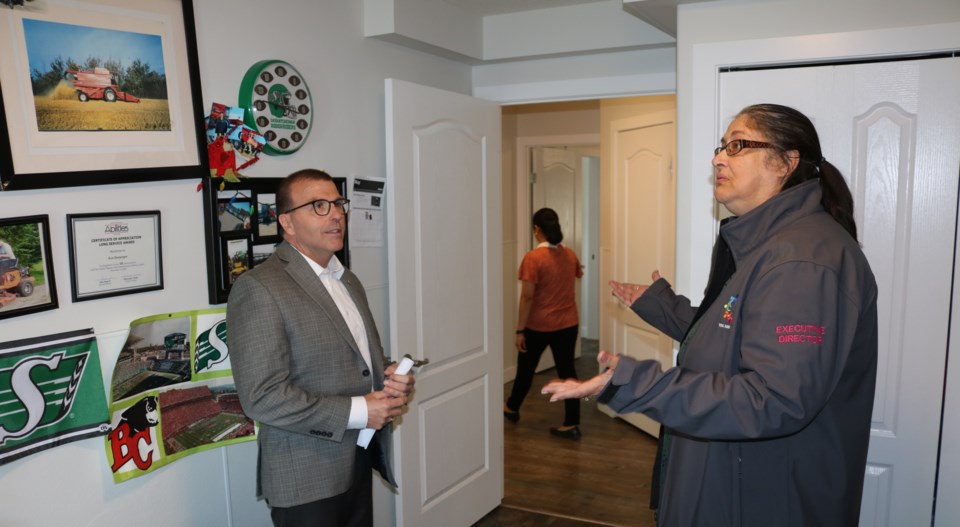YORKTON - Not surprisingly COVID-19 remained at the top of the list for Yorkton MLA Greg Ottenbreit as he reflected on 2022.
“Many were pretty excited about having the restrictions dropped,” he said when asked to reflect on the biggest thing from a provincial point of view in the past year.
And, as it turned out, economically COVID, at least provincially wasn’t the negative drag many had expected.
Ottenbreit noted that largely due to the resource and agriculture sectors the province saw an extra $1.5 billion in revenues over its projections.
The added revenue allowed the government to pay down provincial debt by an extra $1 billion, and to provide residents with $500 cheques – totalling $450 million, he noted.
“It was all based on our resources,” said Ottenbreit, adding “Saskatchewan is a very resource-based economy.”
Ottenbreit said while it may be known by most that the world always needs food, fuel and fertilizer, the diversity of the resource sector in Saskatchewan is largely unknown even by residents.
“The resource industry in Saskatchewan is a lot stronger today,” he said,
That strength comes from resources here being so diverse from potash, to gold, uranium, rare earths and a range of others, noted Ottenbreit.
And, interest is growing. For example, the electric car industry is a consumer of rare earths minerals, he explained.
The biggest thing now is to ensure the world is aware of just what Saskatchewan has to offer, which is why the province is undertaking trade missions and opening eight trade offices, said Ottenbreit.
“Look at Saskatchewan – it has what the world needs,” he said.
And, in 2022 agriculture was humming along too.
“People need food, and our agriculture industry did very well,” said Ottenbreit, adding that sector was bolstered price wise by concerns arising from the Russian invasion of Ukraine, which was good for the sector, but unfortunate in the broader sense.
On a more negative note Ottenbreit admitted the province continues to bull heads with its federal counterpart.
It’s not a case of simply being ideologically different, but rather a case of the province needing to protect what is sees as constitutionally given powers from being impeded upon by the feds, he said.
“They have waded into our region,” he said, pointing to the resource sector as an example.
“Some people say we should just get along with them,” said Ottenbreit, but that doesn’t seem possible at present.
Still, looking ahead to 2023 Ottenbreit said there is a level of expectation the resource and agriculture sectors will remain strong, and that would mean good news for provincial revenues.
Of course there are challenges with a stronger economy, including adjusting as the population grows, said Ottenbreit.
But, grow it must because “there are challenges in the employment sector,” said Ottenbreit, so immigrants are needed.
Ottenbreit also sees continued investment in health care, including continued planning for the long-promised, and much-anticipated new hospital in Yorkton.






